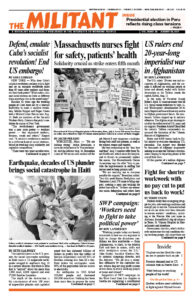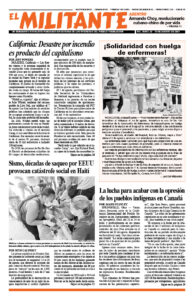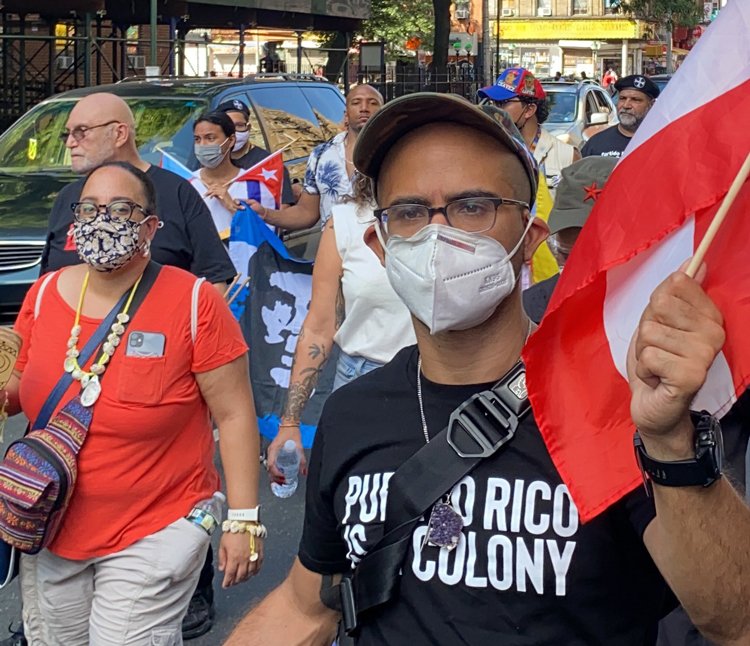NEW YORK — A hundred people marched here Aug. 15 to protest U.S. colonial rule in Puerto Rico. Similar actions were held in Chicago; Detroit; Miami; Oakland, California; Orlando, Florida; and Washington, D.C., under the banner of “No to statehood, march for decolonization.”
Puerto Rico has been a U.S. colony since 1898, when U.S. troops wrested control of the island from Spanish rule. For decades Washington claimed Puerto Rico was a “self-governing” commonwealth, while exercising decisive control over the economy and political life. The imposition of the Fiscal Oversight and Management Board for Puerto Rico by the U.S. Congress in 2016 — whose seven members were appointed by President Barack Obama — placed dictatorial power over the financial affairs and legislation of the country, puncturing any myth of self-rule.
Julio Pabón, who chaired the pre-march rally, told the crowd that there are now nearly 6 million people of Puerto Rican descent in the United States, well more than the 3.3 million who live on the island.
“The last 15 years have been ones of uninterrupted economic decline in Puerto Rico,” said Eric Ramos, a leader of the New York chapter of the Puerto Rican Independence Party. “The only solution is independence.”
The New York action was initiated by the Frente Independentista Boricua, a coalition of organizations backing the fight for independence for Puerto Rico. The march was held to answer forces that call for making Puerto Rico the 51st U.S. state, which the coalition says would be the final “annexation of our homeland.”
The Socialist Workers Party endorsed and joined the action. “We discussed with marchers that independence has to be fought for and taken; it won’t be given to the Puerto Rican people by U.S. imperialism,” Róger Calero, SWP candidate for New York mayor, said. The SWP contingent carried signs stating, “Workers in the U.S. and Puerto Rico fight together.”
As the two-mile march made its way through working-class neighborhoods from the Bronx to Harlem, many onlookers applauded or put their fists in the air in support.
After a rally in Harlem at the end of the march, some participants headed to the nearby mural that depicts both Che Guevara, a leader of the Cuban Revolution, and Pedro Albizu Campos, who led the fight for independence for Puerto Rico in the 1950s. The image of Che had been defaced with red paint two days before the march by opponents of the Cuban Revolution. The mural, created in 1999, includes a quote from a poem by Lola Rodríguez de Tió that says Cuba and Puerto Rico are “two wings of the same bird.”
Supporters of independence for Puerto Rico rapidly repaired the damage to the mural.


